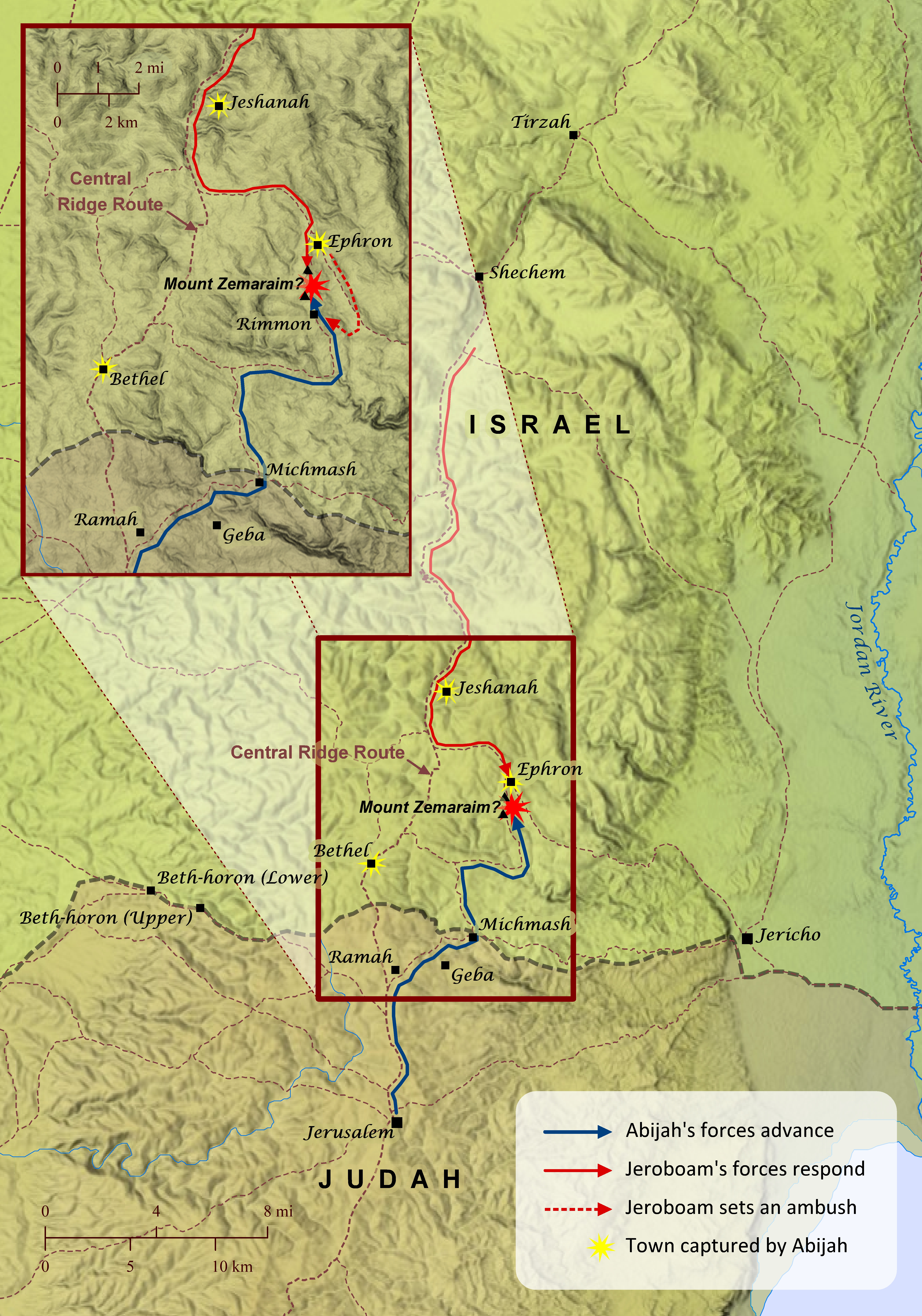Readers’ Version
Literal Version
15 In the eighteenth year of (Nabat’s son) King Yarave’am’s reign over Israel, Abiyyam became king of Yehudah. 2 (His mother’s name was Maakah, one of Abishalom’s daughters.) He reigned from Yerushalem for three years 3 but he disobeyed God in ways similar to his father—he wasn’t interested in following his god Yahweh completely like his ancestor David had done. 4 However for David’s sake, his god Yahweh gave Abiyyam a son to rule after him—to allow Yerushalem to continue on with a flicker of light[ref] 5 because David had done what Yahweh had said was correct, and throughout his life he hadn’t deviated from what Yahweh had instructed him, except in the matter concerning Uriyyah the Hittite.[ref] 6 Rehavam’s and Yarave’am’s factions were in a continual state of war during Abiyyam’s reign.[ref] 7 Everything else that Abiyyam did is written in the book of the events of the kings of Yehudah, as the war between Abiyyam and Yarave’am continued.
8 Then Abiyyam died and was buried with his ancestors in the City of David, and his son Asa replaced him as king.
2 Three years he_reigned in/on/at/with_Yərūshālam/(Jerusalem) and_name_of his/its_mother was_Maˊₐkāh the_daughter_of Abishalom.
3 And_he/it_went in_all the_sins_of his/its_father which he_had_done before_face/front_him and_not it_was heart_of_his complete with YHWH his/its_god as_heart_of Dāvid his/its_father.
4 If/because for_the_sake_of Dāvid YHWH he_gave his/its_god to_him/it a_lamp in/on/at/with_Yərūshālam/(Jerusalem) by_raising_up DOM his/its_son after_him and_by_establishing DOM Yərūshālam/(Jerusalem).
5 That he_had_done Dāvid DOM the_right in/on_both_eyes_of YHWH and_not he_had_turned_aside from_all that commanded_him all_of the_days_of his/its_life only in/on/at/with_matter_of ʼŪriyyāh the_Ḩittiy.
6 And_war it_was between Rəḩaⱱˊām and_between Yārāⱱəˊām all_of the_days_of his/its_life.
7 And_rest_of the_matters_of ʼAⱱiyyām and_all that he_did am_not are_they written on the_scroll_of the_matters_of the_days of_kings_of of_Yəhūdāh/(Judah) and_war it_was between ʼAⱱiyyām and_between Yārāⱱəˊām/(Jeroboam).
8 And_ ʼAⱱiyyām _slept with fathers_of_his and_buried DOM_him/it in/on/at/with_city_of Dāvid and_ ʼĀşāʼ _became_king son_of_his in_place_his.

